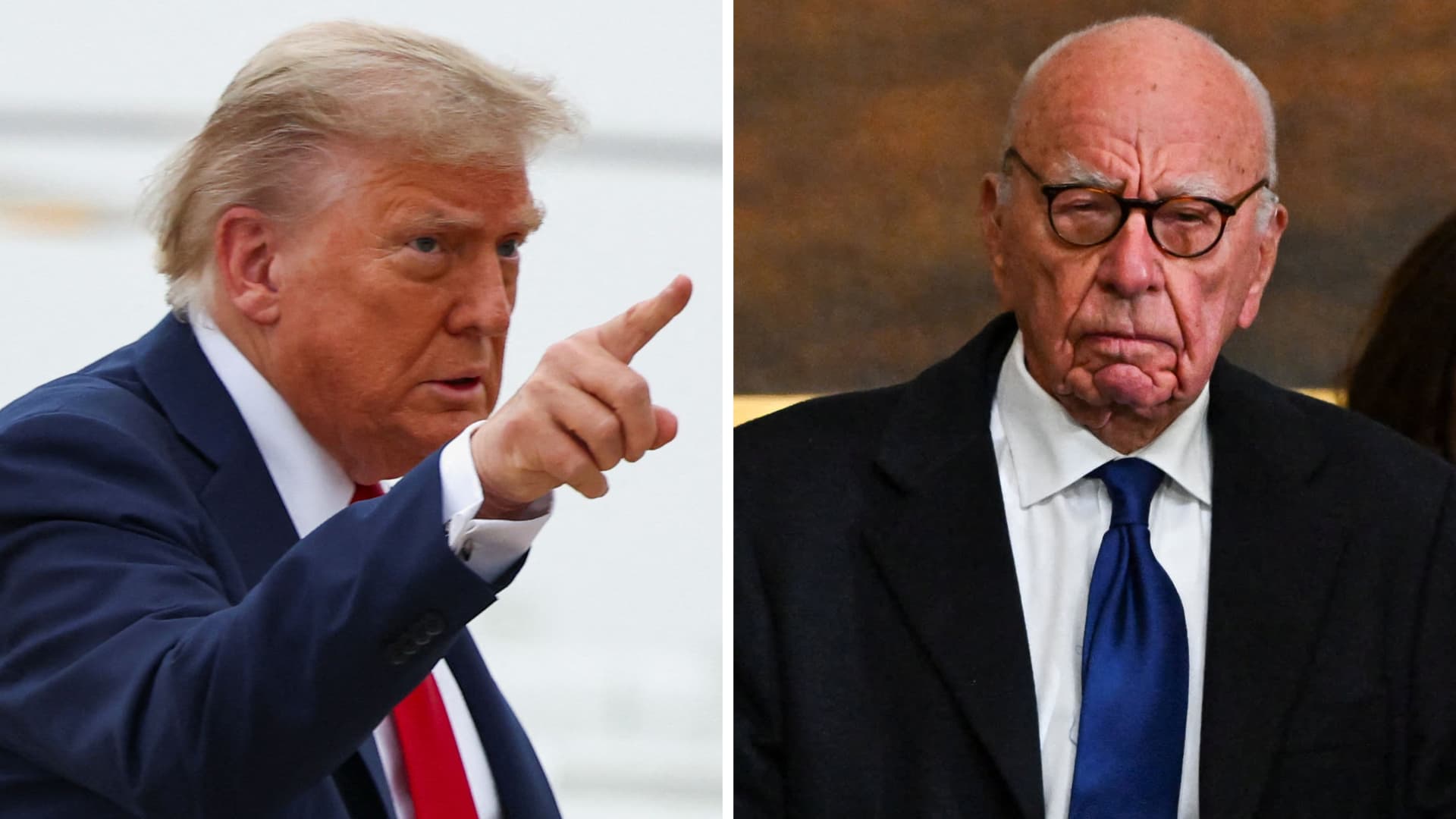The High-Stakes Legal Chess Match: Trump, Murdoch, and the Epstein Echo
Introduction: A Clash of Titans
The legal arena has become a battleground where former President Donald Trump and media mogul Rupert Murdoch are locked in a high-stakes defamation lawsuit. The dispute, centered around an article published by the Wall Street Journal, has ignited a legal battle filled with intrigue, strategy, and potentially explosive revelations. This lawsuit is not just about a single article; it represents a broader conflict between a former president and one of the most influential figures in media, with implications that extend far beyond the courtroom.
The Genesis of the Conflict: A Birthday Letter and Defamation Claims
At the heart of this legal battle is a specific element within the Wall Street Journal’s article: a lewd birthday card or letter that Trump allegedly sent to Jeffrey Epstein for his 50th birthday. Trump vehemently denies the existence of such a letter, arguing that the characterization is false and defamatory. His legal team insists that he warned Murdoch about the falsity of the letter before the article’s publication.
This claim of prior notification is crucial, as it directly impacts the legal standard for defamation. To prove defamation, Trump must demonstrate that the Wall Street Journal acted with “actual malice,” meaning they knew the statement was false or acted with reckless disregard for its truthfulness. If Trump can prove he alerted Murdoch to the letter’s falsity, it strengthens his argument that the Wall Street Journal published the article with actual malice.
The Rush for Deposition: Age, Health, and Urgency
Trump’s demand for a swift deposition of Rupert Murdoch is a key element of his legal strategy. His lawyers are explicitly citing Murdoch’s age (94) and reported “recent significant health scares” as justification for the expedited timeline. This tactic suggests a concern that Murdoch’s availability to testify could be compromised if the deposition is delayed.
Deposing Murdoch would allow Trump’s legal team to directly question him about his knowledge of the letter, his involvement in the editorial decision to publish the article, and his awareness of any potential falsehoods. Murdoch’s testimony could be pivotal in establishing whether the Wall Street Journal acted with actual malice, a critical element for Trump to win his defamation case.
The Stakes: Reputation, Finances, and Media Power
This lawsuit transcends a simple dispute over a news article. The stakes are exceptionally high for all involved. For Trump, the lawsuit is about protecting his reputation and combating what he perceives as unfair media attacks. A successful outcome could not only result in a substantial financial award but also serve as a powerful message to media outlets regarding their coverage of him.
For Rupert Murdoch and the Wall Street Journal, the lawsuit represents a significant challenge to their journalistic integrity and independence. A finding of defamation could have far-reaching implications for their credibility and could potentially lead to further legal challenges. The lawsuit also raises broader questions about the responsibilities of media organizations in reporting on powerful figures and their relationships with controversial individuals.
The Epstein Connection: A Lingering Shadow
The specter of Jeffrey Epstein looms large over this legal battle. Epstein’s crimes and his connections to influential figures continue to generate intense public scrutiny and legal fallout. By linking Trump to Epstein, the Wall Street Journal’s article tapped into a sensitive and highly charged narrative.
Trump’s vehement denial of any inappropriate relationship with Epstein underscores the reputational risk associated with being connected to the disgraced financier. The lawsuit is, in part, an attempt by Trump to distance himself from Epstein and to counteract any negative public perception stemming from their association.
Legal Strategy: A Multifaceted Approach
Trump’s legal team is likely employing a multi-pronged strategy to maximize their chances of success. This strategy likely includes:
Potential Outcomes: A Range of Possibilities
The outcome of this legal battle is far from certain. Several potential scenarios could unfold:
- Settlement: The parties could reach a settlement agreement, avoiding a trial. This could involve a financial payment from the Wall Street Journal to Trump, a retraction or correction of the article, or other concessions.
- Dismissal: The court could dismiss the lawsuit if it finds that Trump has failed to meet the legal requirements for defamation.
- Trial: The case could proceed to trial, where a judge or jury would hear evidence and determine whether the Wall Street Journal defamed Trump.
- Appeal: Regardless of the initial outcome, either party could appeal the decision to a higher court.
Conclusion: A Battle Far From Over
The legal clash between Donald Trump and Rupert Murdoch is a high-stakes drama with significant implications for both individuals and the media landscape. The lawsuit hinges on the veracity of a single letter, but it encompasses broader issues of reputation, media responsibility, and the lingering shadow of Jeffrey Epstein. As the legal proceedings unfold, the world will be watching to see whether Trump can successfully prove his claims of defamation and whether the Wall Street Journal can defend its journalistic integrity. The push for a swift deposition of Murdoch underscores the urgency and intensity of this legal battle, suggesting that both sides are prepared for a protracted and potentially explosive fight. Only time will tell who will emerge victorious in this complex and captivating legal chess match.











